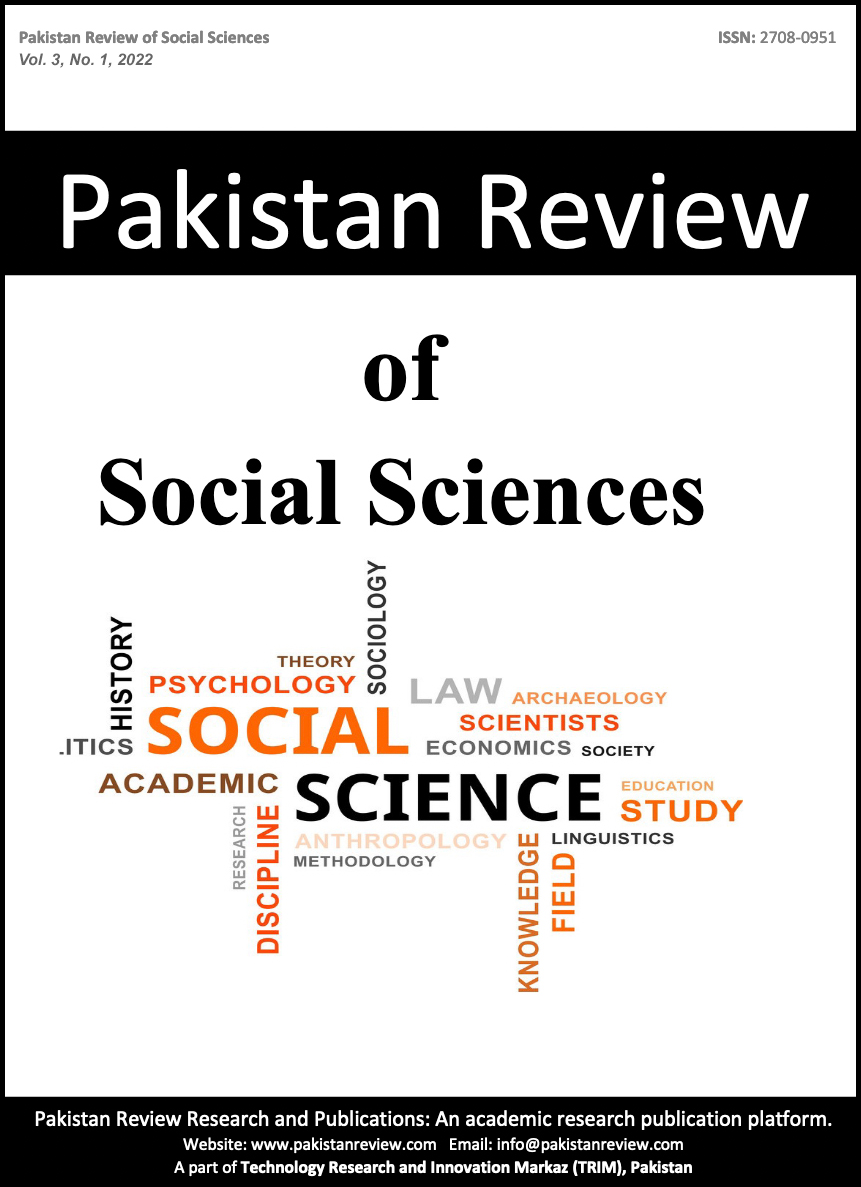Perspective of female students regarding gender preference in family
Keywords:
Social Work, Gender Studies, Female EducationAbstract
Abstract
The primary goal of the study was to learn how female students perceived gender preferences in the home. Quantitative approach with 200 responders in the sample employed for statistical analysis and conclusions demonstrated that, 62.5% (125) of the girls lived in nuclear families, and 78% (156) were from metropolitan areas. An empirical investigation revealed a substantial mean difference (p<.01) in the perception of educational attainment between girls residing in both settings. Second, it is shown that the perceptions of both areas about supportive parental conduct differ significantly (p<.01) in terms of mean. Furthermore, compared to girls living in urban areas (M=-1.38, SD=.580), girls living in rural areas are more likely (M=.107, SD=1.30) to believe that parents prefer sons over daughters when it comes to health care. Finally, the perceptions of girls residing in rural and urban regions regarding their preferred jobs show a negligible mean difference (p<.05). But when it comes to the desire for educational attainment, it turns out that there is a substantial mean difference (p<.01). Nonetheless, there is a noteworthy average distinction (p<.05) between nuclear and mixed families with respect to the supportive conduct of parents toward their son. Additionally, the preference of nuclear and joint families to invest more in their sons, however, is not significantly different (p<.05). Ultimately, parental preference for a son's job over a daughter's is significantly different (p<.05) in nuclear versus joint homes. Parents should therefore encourage their kids to succeed academically. But females ought to have to go to school and be given the same respect as boys do.
Downloads
Published
Issue
Section
License
Copyright (c) 2024 Abdul Ur Rehman, Maaz Ali, Gul Khanda

This work is licensed under a Creative Commons Attribution 4.0 International License.
Submission declaration
Authors retain the copyright to their work and grant the Pakistan Review of Social Sciences (PRSS) the right of first publication under a Creative Commons Attribution 4.0 International (CC BY 4.0) license. This license allows others to share, adapt, and reuse the work for any purpose, including commercial use, as long as appropriate credit is given to the original authors and the journal.
By submitting a manuscript, authors confirm that the work has not been published previously (except as an abstract, lecture, or academic thesis), is not under review elsewhere, and has been approved by all authors and relevant authorities. Once accepted, the article will be openly accessible under the CC BY 4.0 license, ensuring wide dissemination and reuse with proper attribution.






